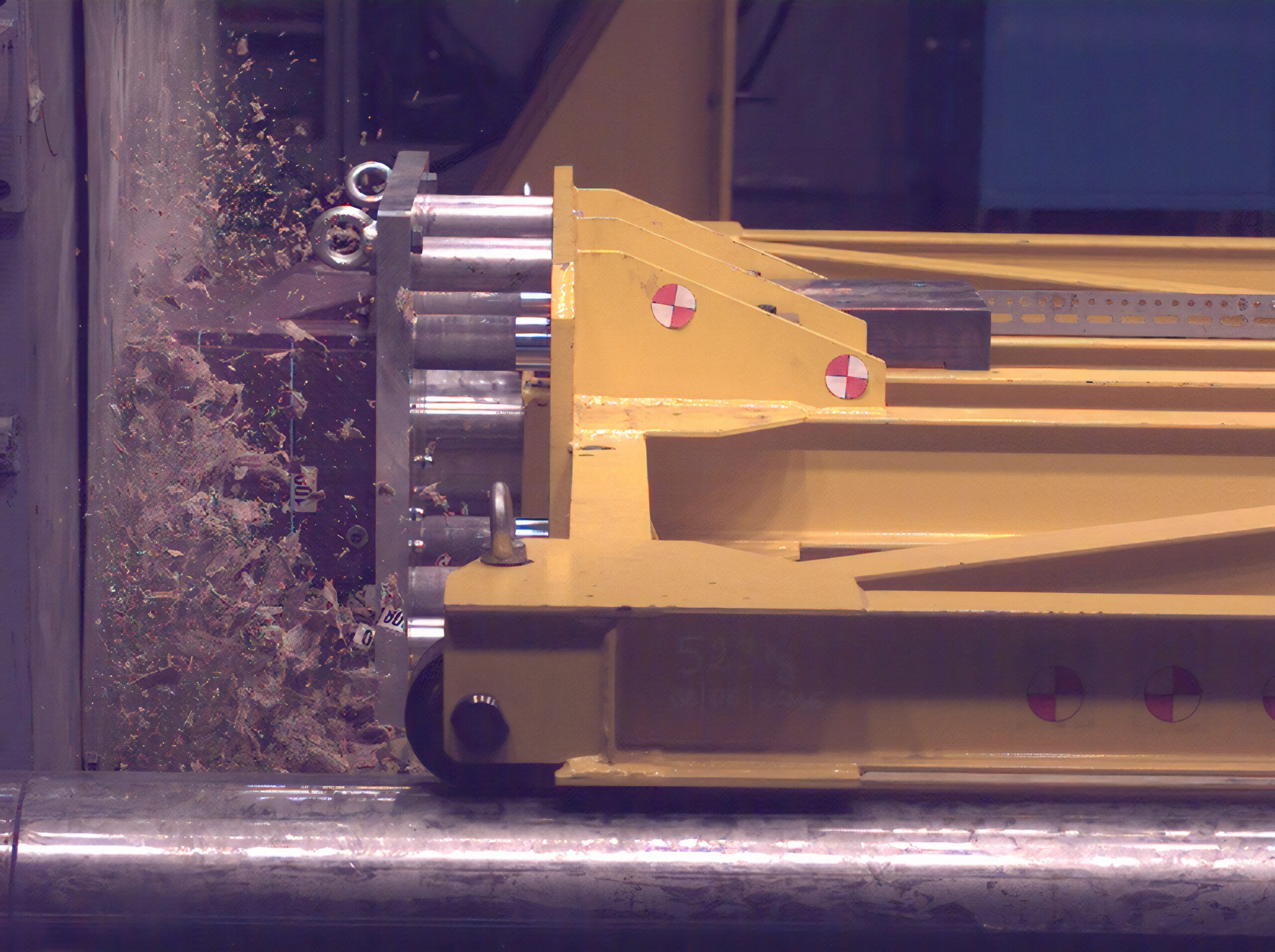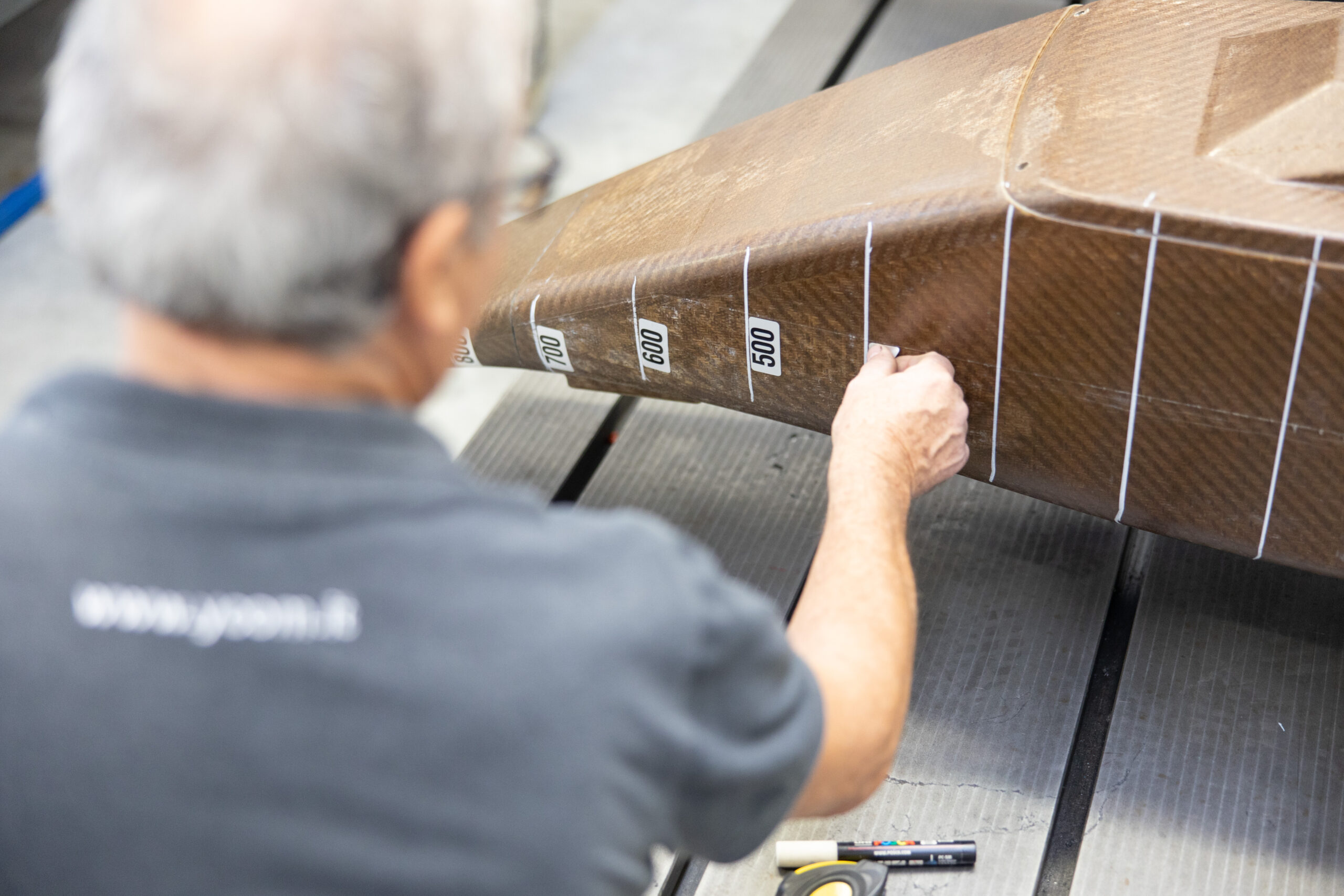
YCOM and Bcomp have today announced the successful crash-test of a natural fibre Front Impact Absorbing Structure (FIAS) – the first of its kind. Designed by leading advanced technologies expert YCOM and using high performance ampliTex™ flax fibres from sustainable lightweighting specialist Bcomp, it proves that natural fibres can play an important role for structural- and safety critical parts.
- Initial crash tests show excellent results and desired crash behaviour
- The test proves the concept and opens the door for structural applications of natural fibres in motorsports
- Benefits include lower CO2 footprint, viable end of life options, and no sharp debris
The crash box is designed to optimise the performance of the ampliTex™ natural fibre reinforcements and was tested at the FIA-approved test house of Politecnico of Milan, producing results in line with a traditional carbon-fibre structure. The material not only shows the desired, even crash behaviour required from a safety perspective, but also eradicates the danger of sharp splintering. Furthermore, natural fibre composites waste can be used for thermal energy recovery.
For the motorsports industry, this proves that high performance natural fibres can be used for significantly wider applications than previously thought, reducing the environmental impact, and enabling technology transfer to mobility. The natural fibre FIAS prototype designed as a proof of concept is currently ca. 40% heavier than its carbon-fibre counterpart but still enables a CO2 reduction of approximately 50% on the composite side.
“Pushing the adoption of natural fibres requires engineers to integrate it from the first day of the design phase. Mastering the full process is the only way to optimize performance and thus increase the competitiveness of sustainable composite materials”, says Mario Saccone, YCOM co-founder and composite expert. “We are really happy to collaborate with Bcomp in this development. Motorsport is a forge for new technology development. This must be done fast and without any risk of error. YCOM has the right experience to embark on complex R&D projects, with the flexibility of the motorsport approach to accelerate product development.”
As industry and governments continue the fight against climate change, motorsport is playing a crucial role as a test bed for sustainable technologies. The motorsport industry enables products to be brought to market and tested in extremely short time frames and then, once proven, these technologies can be applied to high volume vertical markets including automotive, aerospace, and marine.
“This innovation offers new and existing racing series the opportunity to take sustainability to a whole new level”, says Johann Wacht, Motorsports manager at Bcomp. “Together with YCOM we have proven that the use of natural fibres is not limited to bodywork. In the right application it is a viable alternative for structural parts. By using sustainable composite materials instead of carbon fibre, we can significantly improve the CO2 footprint of high-performance parts and reduce the amount of carbon fibre that goes to landfills. As YCOM has shown, you can do this without compromising safety – actually, without sharp debris, safety can even be improved. By combining our sustainable technologies with the exceptional expert knowledge of YCOM we have shown that natural fibres have the potential to be used for structural parts as well as bodywork.”

Source
Bcomp, press release, 2020-10-20.
Supplier
Share
Renewable Carbon News – Daily Newsletter
Subscribe to our daily email newsletter – the world's leading newsletter on renewable materials and chemicals










